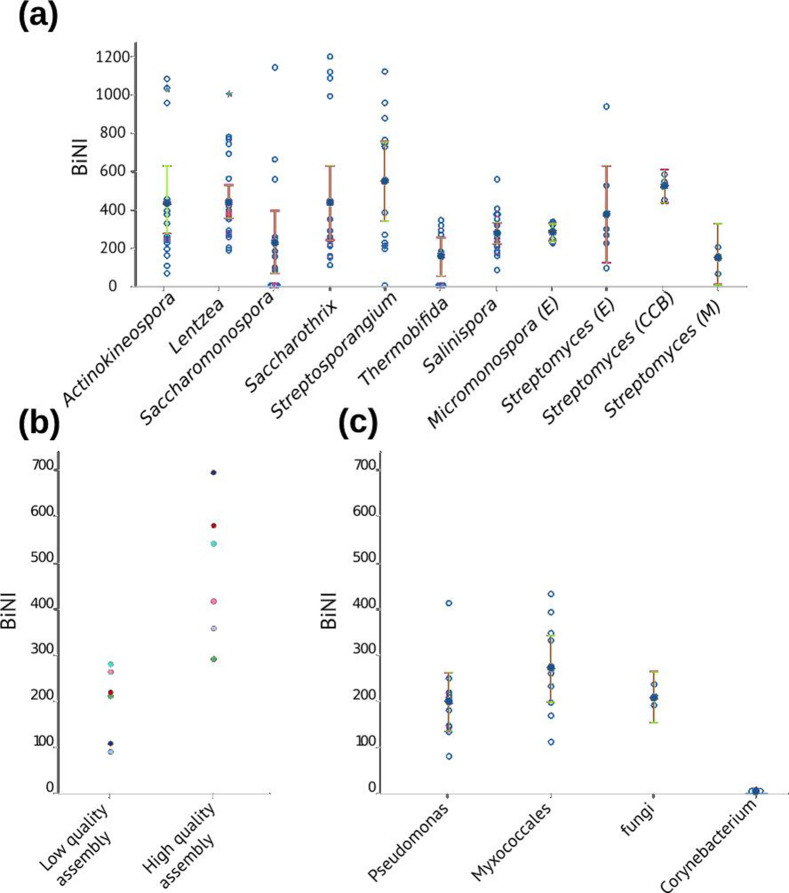Fig. 1.
BiNI of different actinobacteria genera. (a) BiNI comparison between genomes from rare genera of actinobacteria ( Actinokineospora , Lentzea , Saccharomonospora , Saccharothrix , Streptosporangium , Thermobifida and Salinispora); endophytic actinobacteria (E) ( Micromonospora and Streptomyces ); free-living Streptomyces isolated from Cuatro Cienegas Basin (CCB); and reference Streptomyces (M) (Streptomyces xiamenensis 318, Streptomyces rapamycinicus NRRL 549 and Streptomyces coelicolor A32). Mean values (solid blue) are reported for all groups. Blue stars represent the BiNI values of Actinokineospora sp. PR83 and Lentzea sp. CC55 isolated in this study from the Cuatro Cienegas Basin. (b) BiNI comparison between low-quality and high-quality genome assemblies. Blue, Streptomyces sp. KL122B (2104 vs 18 contigs); red, Streptomyces sp. CC228A (1299 vs 26 contigs); green, Streptomyces 8s0 CC219A (1172 vs 382 contigs); purple, Streptomyces sp. KL111A (2096 vs 205 contigs); cyan, Streptomyces 8s0 CC210A (847 vs 9 contigs); pink, Streptomyces sp. CC201C (742 vs 23 contigs). (c) A comparison of the BiNI of reference strains, including genomes from Pseudomonas , Myxococcales , fungi and Corynebacterium .

